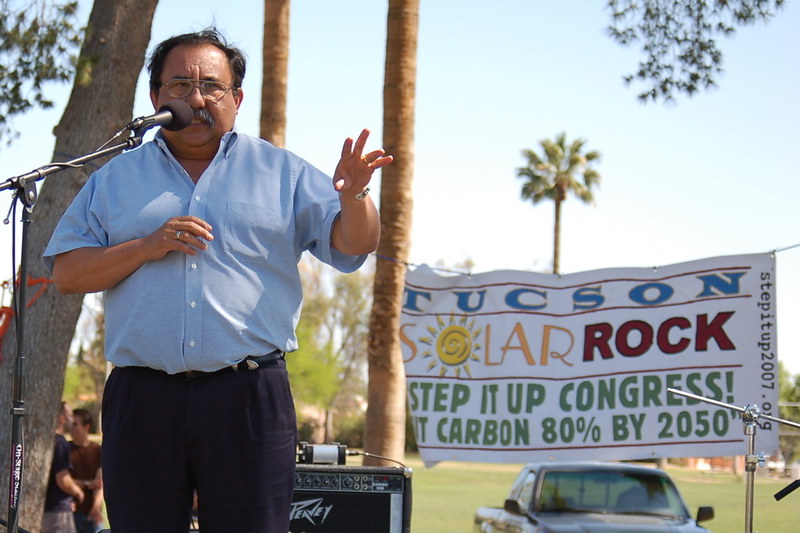Scholars gathered at the UA James E. Rogers College of Law to discuss the First Amendment and how its principles have evolved since its birth, as well as the implications that restrictions on it hold.
On Thursday, the College of Law hosted a panel of seven lawyers and professors from across the country to discuss the multifaceted First Amendment in the lecture “Is Free Speech for Assholes?”
Each panelist hailed from a different law school across the nation, with speakers from Pennsylvania, to Illinois, to Ohio.
Before the panel began, third year UA law student Mitchell Turbinson, said he was excited to hear what the panelists had to say and explained how the ideology behind the First Amendment has changed.
“I think that the talk will mostly be about the push and pull of the First Amendment and how there’s an outcry for more censorship, but people don’t necessarily see the ramifications of that,” Turbenson said.
Each of the panelists were given eight minutes to lecture on his or her specific topic covering free speech.
While each of the speakers covered various aspects of the First Amendment, one major theme present in all of the talks was the idea of protection for all speech, including that which may be against cultural norms.
Ron Collins, a professor of law at the University of Washington, and his academic partner, David Skover, a law professor from the Seattle University School of Law, outlined the main message of the panel in the closing statements of their talk.
“If speech isn’t offensive, there’s no need to protect it,” Collins said.
The panel comes at a good time since campus preachers have recently reunited on the UA Mall during the past week.
In response to the ideologies that the preachers spread to UA students who make their ways across campus, another petition has been formed to have the preachers removed and banned from preaching on the UA. The new petition is calling UA President Ann Weaver Hartc to action with over 1,800c online signatures.
Many students on campus feel the preachers spread hate speech and a line needs to be drawn regarding what religious figures say to their audiences.
Jacqueline Jameson, a nursing sophomore, said that the Dean of Students Office should step in. She said she thinks a petition to remove the preachers would not infringe on other aspects of the First Amendment.
“It’s more of a sexual harassment thing. It’s not expressing your free speech, it’s expressing hatred and I think there should be a limit to that,” Jamison said.
Despite the distaste that it may receive from a mass audience, Genevieve Lakier, an assistant professor at the University of Chicago Law School, and the rest of the panelists agreed that this sort of rhetoric — what some would call hate speech — is the reason the First Amendment was created: To protect speech that others may find unfavorable.
While Lakier understands the frustration that students feel toward campus preachers, she thinks a petition would infringe on the First Amendment rights of others and call into question the appropriateness of speech.
“It might be very satisfying, particularly to the women on campus, for [the administration] to shut him down, but then one has to worry about what does it allow them to do next time,” Lakier said.
Follow Lauren Renteria on Twitter.







